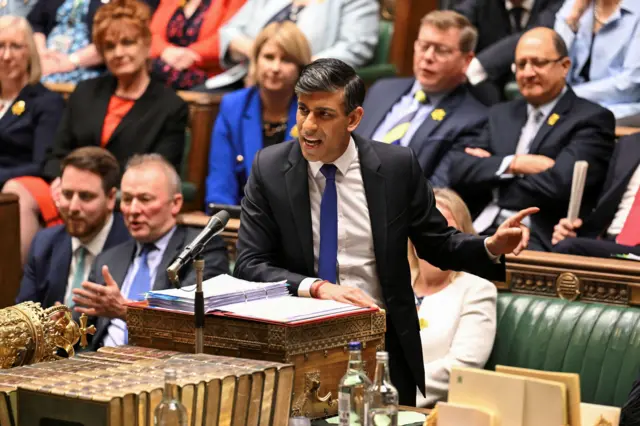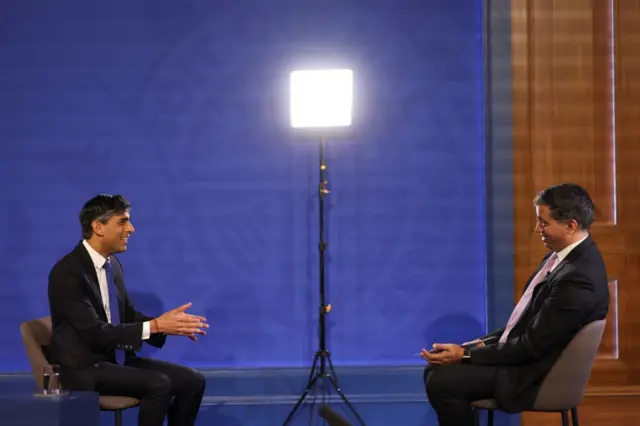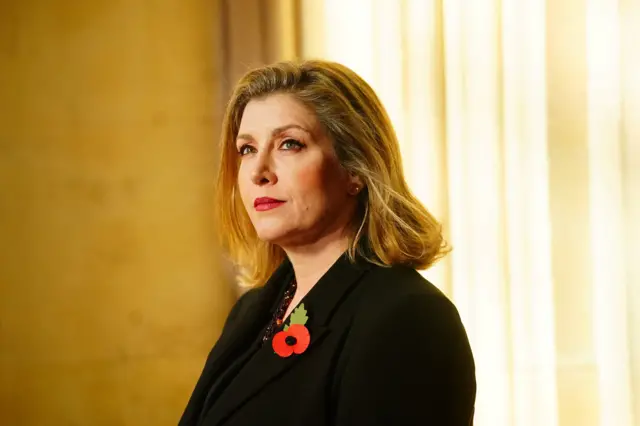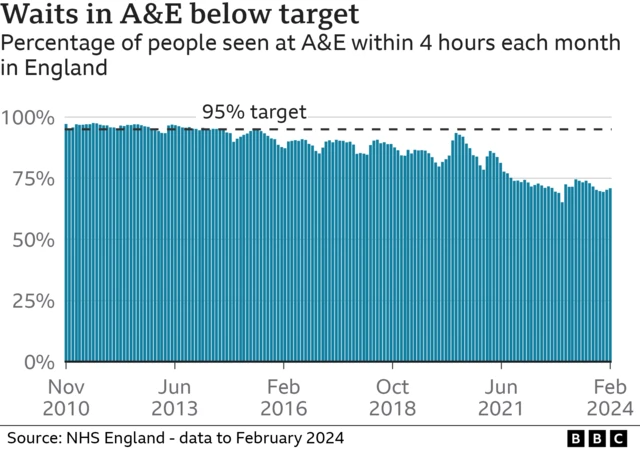Thanks for joining uspublished at 19:16 GMT 20 March 2024
We're now closing our live coverage of today's developments in Westminster and beyond - but there's plenty more BBC content on today's political and economic developments.
You can read our write-up of today's economic news - including that inflation fell to 3.4% in February - here.
Over in the House of Lords, peers inflicted fresh defeats on the government over its flagship Rwanda deportation policy.
The bill must now return to the Commons in a process known as "ping pong", where it is batted between the two Parliamentary chambers until they can agree the final wording. Read more about that here.
The economy will be front and centre again tomorrow when the Bank of England decides whether to change the interest rate - a key tool for tackling inflation. You can find out more about how that decision affects your cost of living here.
Today's coverage was edited by Jemma Crew, Sophie Abdulla and Alex Therrien.
The writers were Emily Atkinson, Barbara Tasch, Jake Lapham, Paul Seddon, Ece Goksedef and Gabriela Pomeroy.






